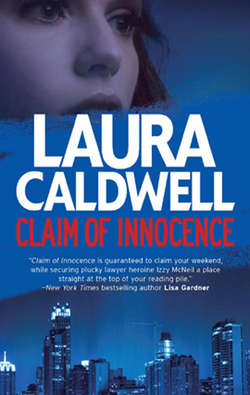Читать книгу Claim of Innocence - Laura Caldwell, Leslie S. Klinger - Страница 5
1
Оглавление“I zzy,” my friend Maggie said, “I need you to try this murder case with me. Now.”
“What?” I shifted my cell phone to my other ear, not sure I’d heard her right. I had never tried a criminal case before—not even a parking ticket, much less a murder trial.
“Yeah,” she said. “Right now.”
It was a hot August Thursday in Chicago, and I had just left the civil courthouse. I had taken three steps into the Daley Center Plaza, looked up at the massive Picasso sculpture—an odd copper thing that looked half bird, half dog—and I actually said to it, “I’m back.”
I’d argued against a Motion to Dismiss for Maggie. She normally wouldn’t have filed a civil case, but she’d done so as a favor to a relative. I lost the motion, something that would have burned me in days of yore, but instead I was triumphant. Having been out of the law for nearly a year, I’d wondered if I had lost it—lost the ability to argue, to analyze information second-to-second, to change course and make it look like you’d planned it all along. I had worried that perhaps not going to court was like not having sex for a while. At first, you missed it deeply but then it became more difficult to remember what it was like with each passing day. Not that I was having that particular problem.
But really, when I’d seen the burning sun glinting off the Picasso and I stated boldly that I was back in action, I meant it figuratively. I was riding off the fact that although Maggie’s opponent had won the motion, and the complaint temporarily dismissed, Judge Maddux had said, “Nice argument, counsel” to me, his wise, blue eyes sparkling.
Judge Maddux had seen every kind of case in his decades of practice and every kind of lawyer. His job involved watching people duke it out, day after day after day. For him to say “Nice argument” was a victory. It meant I still had it.
As I walked through the plaza, the heat curling my red hair into coils, I had called Maggie. She was about to pick a jury at 26th and Cal on a murder case, so her voice was rushed. “Jesus, I’m glad you called,” she said.
Normally, Maggie Bristol would not have answered her phone right before the start of a criminal trial, even if she was curious about the motion I’d handled for her. But she knew I was nervous to appear in court—something I used to do with such regularity the experience would have barely registered. She was answering, I thought, to see how I was doing.
“It went great!” I said.
I told her then that I was a “lawyer for hire.” Civil or criminal, I said, it didn’t matter. And though I’d only practiced civil before, I was willing to learn anything.
Since leaving the legal world a year ago, I’d tried many things—part-time assignments from a private investigator named John Mayburn and being a reporter for Trial TV, a legal network. I liked the TV gig until the lead newscaster, my friend Jane Augustine, was killed and I was suspected in her murder. By the time my name was cleared, I wasn’t interested in the spotlight anymore.
So the reporter thing hadn’t worked out, and the work with Mayburn was streaky. Plus, lately it was all surveillance, which was a complete snooze. “I miss the law,” I told Maggie from the plaza. “I want back in.”
Which was when she spoke those words—I need you to try this murder case with me. Now.
I glanced up at the Picasso once more, and I knew my world was about to change. Again.
